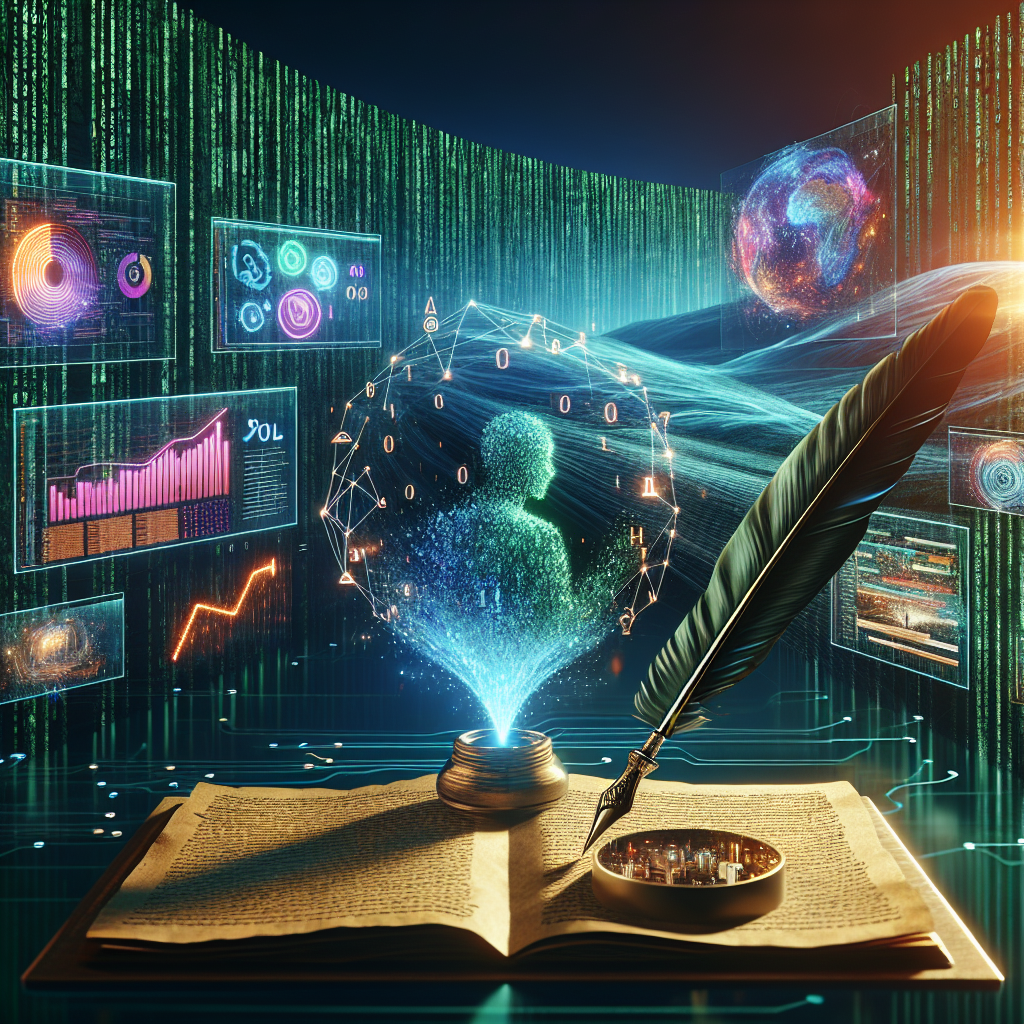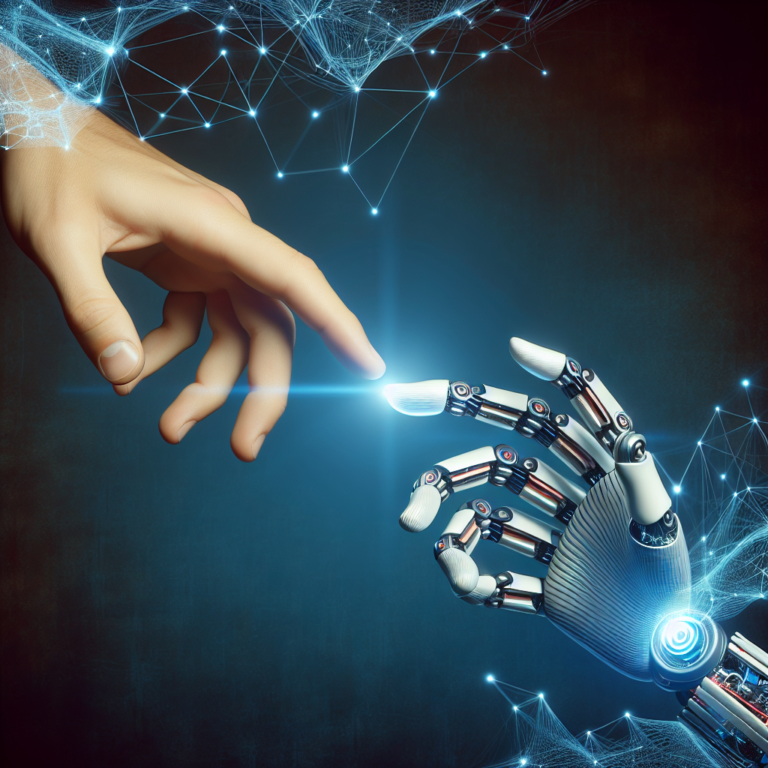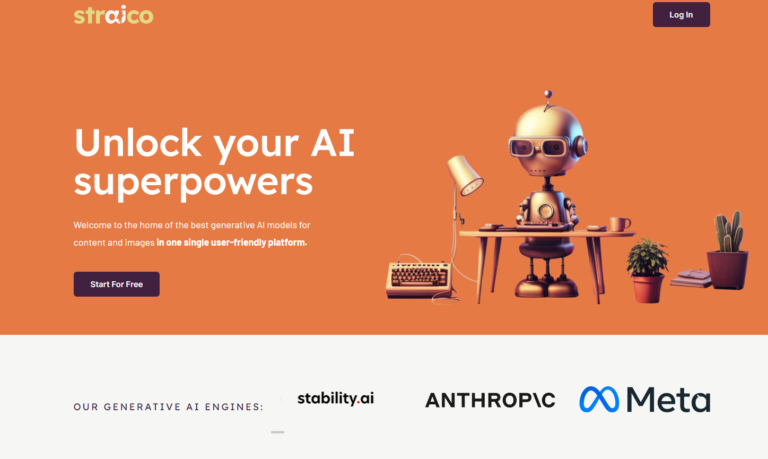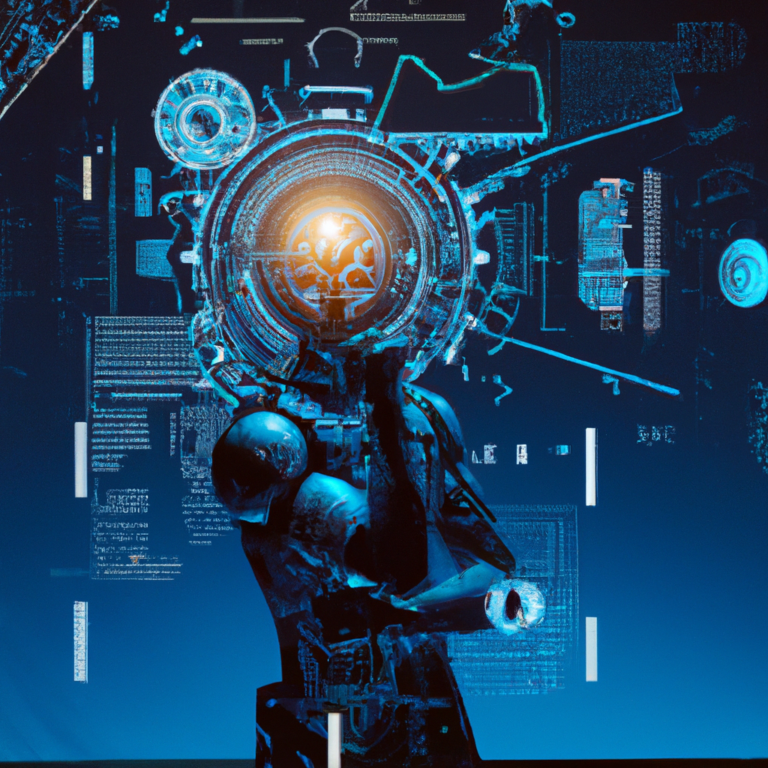
Imagine a world where generating content becomes effortless and efficient with the help of artificial intelligence (AI). From writing captivating articles to creating stunning images and even developing code, AI content generation has revolutionized the way we create and consume information. This article explores the incredible power of AI in content generation, highlighting its ability to enhance creativity, productivity, and ultimately reshape the future of creative industries. Discover how AI is transforming the way we generate content and unlocking new possibilities for innovation and expression.
Understanding AI Content Generation
What is AI Content Generation?
AI Content Generation refers to the use of Artificial Intelligence (AI) technology to create various forms of content, such as text, code, images, videos, and audios. It is a rapidly advancing field that aims to automate the content creation process, making it more efficient, consistent, and personalized.
How does AI Content Generation work?
AI Content Generation utilizes techniques such as Natural Language Processing (NLP), Machine Learning (ML), Deep Learning, and Generative Adversarial Networks (GANs) to analyze and understand vast amounts of data. By learning from patterns and examples, AI models generate content that mimics the style and context of human creators. These models can be trained on large datasets to improve their accuracy and ability to produce high-quality content.
Benefits of AI Content Generation
AI Content Generation offers numerous benefits to businesses and content creators alike. It enables increased efficiency and productivity by automating repetitive tasks, allowing content creators to focus on more creative and strategic aspects of their work. Moreover, AI-generated content can maintain a high degree of quality and consistency, ensuring a seamless experience for the audience. Additionally, it provides time and cost savings, as AI models can generate content at a faster rate and reduce the need for extensive human involvement. AI Content Generation also fosters enhanced creativity and innovation, inspiring new ideas and possibilities. Lastly, it enables personalization and customization, tailoring content to individual preferences and increasing audience engagement.
Applications of AI in Content Generation
Automated Text Generation
AI-powered automated text generation has become widely used in various industries, including journalism, marketing, and customer support. Natural Language Processing techniques enable AI models to write articles, blog posts, product descriptions, and social media posts that are indistinguishable from those written by humans. This technology saves time, allows for consistent messaging, and can generate content at scale.
Code Generation
AI Content Generation has found its place in the software development field as well. By using machine learning algorithms, AI models can assist developers in generating code snippets and even entire programs. This accelerates the development process and reduces the chances of errors, contributing to improved efficiency and productivity.
Image Generation
AI Content Generation has made significant advancements in the field of image creation. Generative Adversarial Networks (GANs) have been widely utilized to generate realistic and high-quality images that are nearly indistinguishable from those captured by cameras. This technology has applications in fields such as graphic design, advertising, and entertainment.
Video Generation
AI-powered content generation has entered the realm of video production as well. Deep learning techniques enable AI models to analyze existing footage and generate new videos with desired features and styles. This technology can automate tasks such as video editing, special effects creation, and even scriptwriting, catering to the needs of filmmakers, video producers, and content creators.
Audio Generation
AI Content Generation has also expanded its reach into the realm of audio. Through machine learning and deep learning algorithms, AI models can generate music, speech, and even sound effects. This has applications in industries such as music production, voice-over services, and podcasting, providing creators with a novel way to generate audio content.
AI Content Generation Techniques
Natural Language Processing (NLP)
Natural Language Processing is a branch of AI that focuses on the interaction between computers and human language. NLP techniques enable AI models to understand, interpret, and generate human-like text. This forms the basis for AI-powered automated text generation and other language-based content creation processes.
Machine Learning (ML)
Machine Learning involves the use of algorithms and statistical models that enable AI systems to learn and improve without being explicitly programmed. ML techniques are used in AI Content Generation to analyze data, identify patterns, and generate content that aligns with human-like styles and contexts.
Deep Learning
Deep Learning is a subset of Machine Learning that focuses on algorithms inspired by the structure and function of the human brain. Deep Learning techniques, such as neural networks, enable AI models to process and analyze vast amounts of data, resulting in more accurate and sophisticated content generation.
Generative Adversarial Networks (GANs)
Generative Adversarial Networks utilize two competing neural networks – a generator and a discriminator – to generate content. The generator network creates content, while the discriminator network evaluates the generated content for authenticity. This iterative process allows AI models to produce high-quality content that is difficult to distinguish from content created by humans.

Advantages of AI Content Generation
Increased Efficiency and Productivity
AI Content Generation significantly improves efficiency and productivity by automating repetitive content creation tasks. This allows content creators to focus their time and energy on more creative and strategic aspects of their work, leading to faster delivery of content.
Improved Quality and Consistency
AI Content Generation can maintain a high level of quality and consistency throughout the content creation process. AI models are trained on vast amounts of data, enabling them to mimic the style, tone, and context of human creators. As a result, the content generated by AI is indistinguishable from human-created content, ensuring a seamless and cohesive audience experience.
Time and Cost Savings
By automating content creation processes, AI Content Generation can save both time and cost for businesses and content creators. AI models can generate content at a faster rate than humans, reducing the overall time required to create content. Additionally, the cost of content creation can be significantly reduced as fewer human resources are needed to produce content.
Enhanced Creativity and Innovation
AI Content Generation technologies can act as a source of inspiration for content creators, sparking new ideas and possibilities. By automating repetitive and mundane tasks, AI frees up valuable time for content creators to focus on exploring their creativity and thinking innovatively.
Personalization and Customization
AI Content Generation enables personalization and customization of content, tailoring it to individual preferences and increasing audience engagement. With the help of AI, content creators can analyze vast amounts of data to understand their audience better and create personalized content that resonates with them.
Challenges in AI Content Generation
Lack of Human Touch
While AI Content Generation offers numerous benefits, it can sometimes lack the human touch that distinguishes authentic human-created content. AI-generated content may lack the emotional connection and subtle nuances that are characteristic of human creativity and expression.
Ethical Concerns
As AI continues to advance in content generation, ethical concerns arise. The use of AI to generate content raises questions about the authenticity, transparency, and fairness of the content creation process. It is crucial to ensure that AI-generated content aligns with ethical guidelines and maintains transparency with the audience.
Legal Issues
AI Content Generation poses legal challenges, especially regarding intellectual property rights and copyright infringement. As AI models generate content based on existing data, there is a risk of unintentionally using copyrighted material or violating intellectual property rights. Establishing legal frameworks to address these issues is essential for the responsible use of AI in content generation.
Data Bias
AI Content Generation relies heavily on the data used to train the models. If the training data contains biases or lacks diversity, AI-generated content may perpetuate or amplify those biases. Care must be taken to ensure that the data used to train AI models is representative and diverse to mitigate bias in content creation.
Maintenance and Upkeep
AI Content Generation systems require regular maintenance and upkeep to ensure optimal performance. This includes updating models, addressing software bugs, and staying updated with the latest advancements in AI technology. Failure to maintain and update AI systems may lead to degraded performance and inaccurate content generation.
Emerging Trends in AI Content Generation
AI-powered Content Marketing
AI Content Generation is revolutionizing the field of content marketing. AI models can analyze customer data, market trends, and consumer behavior to generate content that aligns with specific target audiences. This enables companies to deliver personalized and targeted marketing campaigns, resulting in improved customer engagement and conversion rates.
Multimodal Content Generation
Multimodal Content Generation involves the combination of multiple media types, such as text, images, and videos, to create content. AI models can generate content that integrates various modalities, providing a richer and more engaging experience for the audience. This trend is transforming industries such as advertising, entertainment, and virtual reality.
AI-Assisted Content Curation
AI can assist in content curation by analyzing vast amounts of data and providing content recommendations based on user preferences and interests. By automating the content curation process, AI models save time for content creators, ensuring that users receive relevant and engaging content.
AI-based Translation and Localization
AI Content Generation has paved the way for advancements in translation and localization. AI models can translate content across different languages with high accuracy and efficiency, enabling businesses to reach global audiences effectively. Additionally, AI can assist in localizing content, adapting it to specific cultural contexts and preferences.
Real-time Content Generation
Real-time Content Generation leverages AI technology to generate content in real-time, responding to dynamic and rapidly changing events. This trend is particularly relevant in areas such as news reporting and social media, where timely content creation is essential. Real-time content generation allows businesses and content creators to stay up-to-date and engage with their audience in a timely manner.
Future Implications of AI in Content Generation
Automation of Content Creation
The future of AI Content Generation lies in the automation of content creation processes. As AI technology advances, we can expect to see more sophisticated AI models that can independently create high-quality content across various media formats. This will revolutionize industries such as journalism, advertising, and creative writing.
Shift in Roles and Responsibilities
AI Content Generation will lead to a shift in roles and responsibilities within the content creation landscape. While AI will handle repetitive and mundane tasks, human content creators will focus on more strategic decision-making, creative ideation, and maintaining the human touch that adds authenticity to content.
Collaboration between AI and Human Creatives
The future of AI Content Generation is not about replacing human creatives but rather collaborating with them. AI can act as a powerful tool to enhance human creativity, providing suggestions, inspiration, and insights that human content creators can leverage to produce even more compelling and innovative content.
Enhanced User Experience
AI Content Generation will significantly impact the user experience by delivering highly personalized and customized content. By using AI-driven algorithms, content creators can tailor content to individual preferences, thereby creating a more engaging and relevant experience for the audience.
Impact on Job Market and Distribution of Work
The widespread adoption of AI Content Generation will inevitably impact the job market and the distribution of work. While certain routine tasks may be automated, new roles will emerge that require expertise in managing and training AI models. This shift will require re-skilling and upskilling of individuals to adapt to the changing landscape.
Ethical Considerations in AI Content Generation
Responsibility and Accountability
As AI Content Generation becomes more prevalent, it is essential to establish responsibility and accountability frameworks. Organizations and content creators must take responsibility for the content generated by AI and be accountable for any ethical or legal implications that may arise.
Transparency and Explainability
Transparency and explainability are crucial when it comes to AI-generated content. Users should be made aware when they are interacting with AI-generated content, and organizations should provide explanations on how AI models generate content and the data used in the training process.
Intellectual Property Rights
AI Content Generation raises complex issues surrounding intellectual property rights. The ownership and copyright of content generated by AI models need to be carefully addressed to ensure fairness and protection of creators’ rights.
Avoiding Misinformation and Manipulation
AI-generated content has the potential to spread misinformation and manipulate public perception. Content creators must exercise caution and implement safeguards to prevent the misuse of AI technology for malicious purposes. Fact-checking and review processes should be in place to mitigate these risks.
Regulations and Guidelines
To ensure the responsible and ethical use of AI in content generation, regulations and guidelines need to be established on a global scale. Governments, organizations, and industry bodies should collaborate to develop comprehensive frameworks that address ethical concerns, data protection, and fairness in content creation.
Conclusion
AI Content Generation is revolutionizing the way content is created, delivering numerous benefits such as increased efficiency, improved quality, and enhanced personalization. From automated text generation to the creation of images, videos, and audios, AI-powered techniques are transforming various industries. While challenges such as the lack of human touch and ethical concerns exist, emerging trends and future implications highlight the potential for collaboration between AI and human creatives. Through responsible and ethical use, AI Content Generation has the power to enhance user experiences, reshape job markets, and drive innovation in content creation. As technology continues to advance, it is crucial to address ethical considerations and establish regulatory frameworks that promote fairness, transparency, and accountability in the AI Content Generation landscape.






